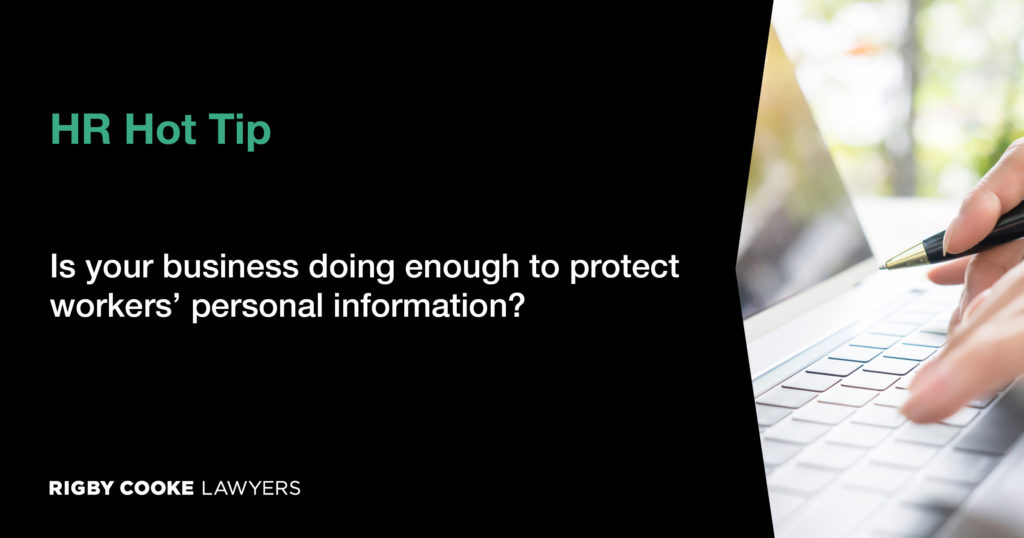Welcome to our series of HR interviews with Lawyer Monika Nosal who answers some of the most common questions asked by HR managers regarding employees’ legal entitlements.

Businesses collect a great deal of personal information about their employees, prospective employees and contractors.
Employers obligations in relation to personal (including sensitive) information can be complex, overlapping, and at times confusing. All businesses need to be aware of their obligations and implement best practice to protect the personal information that they hold and to ensure compliance.
Generally, this may include:
- limiting the information that is collected to that which is required or necessary
- in some cases, providing notice to individuals about the potential collection, use and disclosure of personal information (and in some cases obtaining consent)
- disclosing personal information only if required or permitted by law, or with consent
- taking steps to ensure the personal information held is accurate, complete and up to date
- keeping personal information secure and protected from unauthorised access, use and disclosure (both by people internal and external to the business)
Employers need to properly understand their legal obligations to avoid any possible claims by employees (both existing and former), unsuccessful job applicants, contractors, and the Office of the Australian Information Commissioner. A breach may also trigger mandatory reporting obligations under the Notifiable Data Breaches regime in the Privacy Act 1988 (Cth).
A HR Legal Audit conducted by Rigby Cooke can provide employers with comfort in knowing that they are legally compliant, or at least provide advance warning of any potential compliancy issues before they become problematic.
| Disclaimer: This publication contains comments of a general nature only and is provided as an information service. It is not intended to be relied upon as, nor is it a substitute for specific professional advice. No responsibility can be accepted by Rigby Cooke Lawyers or the authors for loss occasioned to any person doing anything as a result of any material in this publication.
Liability limited by a scheme approved under Professional Standards Legislation. ©2021 Rigby Cooke Lawyers |
